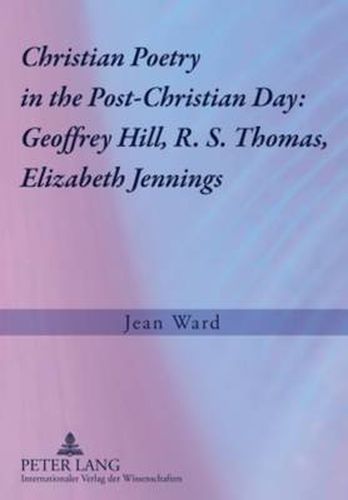Readings Newsletter
Become a Readings Member to make your shopping experience even easier.
Sign in or sign up for free!
You’re not far away from qualifying for FREE standard shipping within Australia
You’ve qualified for FREE standard shipping within Australia
The cart is loading…






Despite Nietzsche’s predictions, Christianity has not faded away; Christianity and post-Christianity exist alongside each other in the Western world. But today’s Christian poet speaks to an audience that often has little understanding of the language, symbols and theological concepts that inform his or her work. This study looks selectively at the work of three poets, two grounded in the Anglican and one in the English Roman Catholic tradition, attempting to show how each has responded to this situation. Geoffrey Hill, R. S. Thomas and Elizabeth Jennings, each in different and inventive ways, draw on the rich resources of Christian culture, literary, liturgical, mystical and devotional, reaching far back into English tradition as well as outside it, and by implication revealing an element of regret at the consequences of the English Reformation.
$9.00 standard shipping within Australia
FREE standard shipping within Australia for orders over $100.00
Express & International shipping calculated at checkout
Despite Nietzsche’s predictions, Christianity has not faded away; Christianity and post-Christianity exist alongside each other in the Western world. But today’s Christian poet speaks to an audience that often has little understanding of the language, symbols and theological concepts that inform his or her work. This study looks selectively at the work of three poets, two grounded in the Anglican and one in the English Roman Catholic tradition, attempting to show how each has responded to this situation. Geoffrey Hill, R. S. Thomas and Elizabeth Jennings, each in different and inventive ways, draw on the rich resources of Christian culture, literary, liturgical, mystical and devotional, reaching far back into English tradition as well as outside it, and by implication revealing an element of regret at the consequences of the English Reformation.